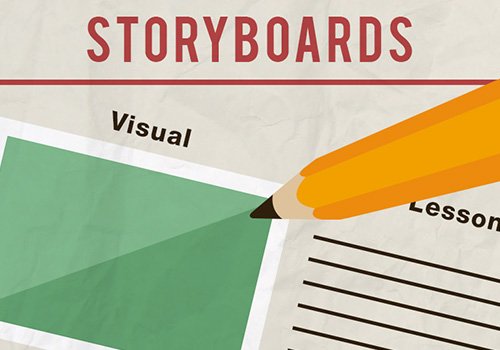Take the help of tools to stimulate creativity. Include playful games or forms of visual exercises that will excite young minds and capture their interest.
This is a time-tested method to identify every young student’s creative abilities and encourage creative contributions.
Bring aspects of creativity into all your subjects, be it mathematics, science, or history. Think of ways to develop their creative ideas.
Encourage different ideas, give them the freedom to explore
2. Audio & Video Tools
Incorporate audio-visual materials to supplement textbooks during your sessions. These can be models, filmstrips, movies, pictures, infographics or other mind mapping and brain mapping tools.
Such tools will help their imagination thrive and grow.
These methods will not only develop their ability to listen but will also help them understand the concepts better.
For example, you can get some oral history materials, conduct live online discussions or playback recordings of public lectures.
If you are tech-savvy, there are also a number of smart apps for preschoolers that you can utilize to create awesome slideshows or presentations
3. “Real-World” Learning
Infusing real-world experiences into your instructions will make teaching moments fresh, and enrich classroom learning.
Relating and demonstrating through real-life situations will make the material easy to understand and easy to learn. It will spark their interest and get the children excited and involved.
4. Brainstorm
Make time for brainstorming sessions in your classrooms. These sessions are a great way to get the creative juices flowing.
When you have multiple brains focusing on one single idea, you are sure to get numerous ideas and will also involve everyone into the discussion.
These sessions will be a great platform for students to voice their thoughts without having to worry about right or wrong.
Set some ground rules before you start. You can go for simple brainstorming or group brainstorming or paired brainstorming
5. Classes Outside the Classroom
Some lessons are best learnt, when they are taught outside of the classroom. Organize field trips that are relevant to the lessons or just simply take students for a walk outside of the classroom.
Students will find this fresh and exciting. Without taking much effort, they will learn and remember what you teach them.
6. Role Play
Teaching through role-playing is a great way to make children step out of their comfort zone and develop their interpersonal skills.
This method comes in handy, especially when you are teaching literature, history or current events.
Also Read: 15 Best Math Apps For Kids
The role playing approach will help a student understand how the academic material will be relevant to his everyday tasks
Role playing is most effective for students of almost any age group. You just need to customize depending on the age group.
You can even use this method for teaching preschoolers. Just make sure you keep it simple enough to capture their limited attention span
7. Storyboard Teaching
Rudyard Kipling rightly said, “If history were taught in the form of stories, it would never be forgotten.”
Storyboarding is a great way to teach any subject which requires step-by-step memorization or visualization highly-conceptual ideas.
History teachers can use a storyboard to recreate a famous event. Such visually stimulating activity will ensure that even complex ideas are easily put across to students.
You can also encourage the use of storyboards as a form of communication and let the students tell a story in pictures using their imagination
8. Stimulating Classroom Environment
A classroom environment that is well-decorated, fun, and engaging will help stimulate a student’s mind and will help think and learn better.
Such a creative and stimulating environment will help them explore and will encourage them to learn about the subject.
Children, especially young ones cannot be expected to sit all day and learn. An environment that positively impacts the children is beneficial for you as well.
Schools associated with Early Years Foundation Stage(EYFS) will vouch for the fact that the learning environment has a prime role in learning and development
9. Welcome New Ideas
An open-minded attitude can help you in innovating new teaching methods. Though you might claim to be open-minded, its human nature to resist change.
Evaluate yourself and ensure you try out new ideas in the classroom.











.jpg)
.jpg)




0 Comments